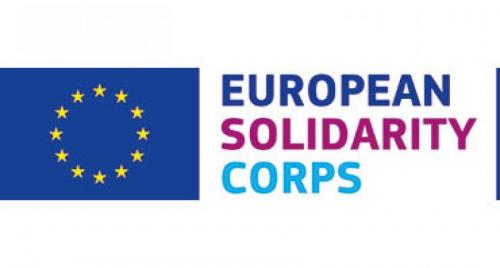
http://europa.eu/rapid/press-release_IP-18-4035_en.htm
The new programme will allow at least 350,000 young Europeans to support communities in need between 2021 and 2027 through volunteering, traineeships and job placements. The proposal adopted today marks the consolidation of the Corps for the next budgetary period.
Commissioner for Budget and Human Resources, Günther H. Oettinger, said: "Solidarity is one of the key values in the European Union, and the success of the European Solidarity Corps shows that there's a high demand of young people to participate in solidarity activities. That's why we have significantly increased the financial means for the European Solidarity Corps in the next EU budget."
Tibor Navracsics, Commissioner for Education, Culture, Youth and Sport, said: “With this proposal, the European Commission has confirmed its commitment to strengthening solidarity and empowering young people. We are putting everything in place to enable the European Solidarity Corps to grow into a broad community of people and organisations ready to support those in need across our continent and beyond, helping to build resilient, cohesive societies. Young people, in turn, will gain skills, new friendships, and a strong sense of what it feels like to be European.”
Commissioner for Employment, Social Affairs, Skills and Labour Mobility, Marianne Thyssen, commented: "Building on the experience gained so far, this proposal provides for a more inclusive and flexible approach and ultimately a greater freedom of choice for participants, whether they'd like to go on a voluntary or professional placement."
The new programme will build on the achievements of the Corps in its first years of existence and creates one single entry point for young people ready to engage in solidarity. In particular, the programme will include:
- Volunteering activities in support of humanitarian aid operations in non-EU countries: The addition to the European Solidarity Corps of this well-established EU scheme for humanitarian aid, which has so far operated under the name EU Aid Volunteers, will provide volunteering opportunities outside the EU and will complement existing opportunities under the Solidarity Corps to volunteer individually or as a group, follow a traineeship or get a job in a solidarity field in Europe or beyond;
- Targeted measures: These will include additional funding or dedicated activities of shorter duration or within one's own country, for example, to make it easier for disadvantaged young people to take part in the European Solidarity Corps.
Next steps
A swift agreement on the overall long-term EU budget and its sectoral proposals is essential to ensure that EU funds start delivering results on the ground as soon as possible.
Delays could put into question the implementation of the first year of the European Solidarity Corps programme. An agreement on the next long-term budget in 2019 would provide for a seamless transition between the current long-term budget (2014-2020) and the new one and would ensure predictability and continuity of funding to the benefit of all.
Background
During his 2016 State of the Union address, Commission President Jean-Claude Juncker announced the creation of a European Solidarity Corps, offering young people between the ages of 18 and 30 the opportunity to take part in a wide range of solidarity activities across the EU and beyond. Since its launch on 7 December 2016, almost 64,000 young people have joined the European Solidarity Corps, and almost 5,000 participants started their activity.
During a first phase launched in December 2016, eight different programmes were mobilised to offer volunteering, traineeship or job opportunities under the European Solidarity Corps. In May 2017, the Commission put forward a proposal to equip the European Solidarity Corps with its own financing mechanism and legal framework. The proposal is currently being discussed by the European Parliament and the Council. This will help further increase its coherence and impact. A budget of €376.5 million for the European Solidarity Corps over the period 2018-2020 would allow 100,000 young Europeans to support communities and develop their competences by the end of 2020.
Any public or private body adhering to strict quality requirements can propose projects for the European Solidarity Corps. It will be implemented by the European Commission, the Erasmus+ National Agencies in the Member States, and the Education, Audiovisual and Culture Executive Agency.
For more information
MEMO: The European Solidarity Corps beyond 2020: Questions and Answers
Factsheet: EU budget for the future: European Solidarity Corps beyond 2020
Factsheet: EU budget for the future: European Solidarity Corps in action










Add new comment